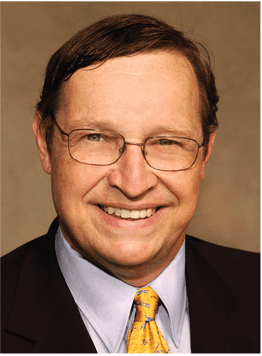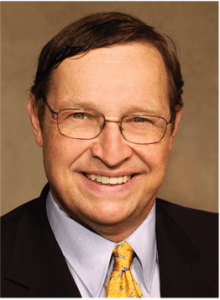May 2014 Hearing Review
The following is from David Kirkwood’s April 9, 2014 blog at his Hearing News Watch column at HearingHealthMatters.org.
A bill to advance the goal of Fit to Serve, an International Hearing Society (IHS) campaign to give hearing aid specialists a greater role in caring for veterans with hearing problems, was debated during a March 27 hearing of the House Veterans Affairs Subcommittee on Health.
Bill’s Sponsor Sees “Unacceptable” Delays at VA
Rep Sean Duffy (R-WI), one of the two lead sponsors of HR 3508, spoke in his testimony before the committee of the “unacceptable” delays that veterans face in getting help for their hearing problems because the Department of Veterans Affairs (VA) Audiology Service lacks the resources to keep up with the fast-growing demand for its services.
Duffy told of veterans having to wait for up to a year to get hearing aids and facing lengthy delays in scheduling follow-up appointments or hearing aid repairs. This, he said, is “a disservice to our veterans.” As an example, he cited Roger, a 70-year-old Vietnam War veteran in his district whose hearing aid quit working. Told he would have to wait 6 months to get a new one from the VA, Roger went to a local hearing aid specialist and was seen the same day. Not willing to wait months to be able to hear again, Roger decided to pay out of pocket for new hearing aids. However, Duffy said, Roger and other veterans should not have to choose between buying hearing aids now or waiting for months.
While praising the “wonderful services” that VA audiologists provide, Duffy said that they need help to keep up with demand. Passage of HR 3508 would provide that help, he said, by allowing the VA to hire hearing aid specialists, who he described as well qualified to perform routine dispensing, fitting, and repair of hearing aids. Hiring them, he added, would free up more time for audiologists to devote to specialized cases and complex conditions that require an audiologist’s training.
No Need for Law, Says VA Official
Madhulka Agarwal, MD, Deputy Under Secretary for Health, Policy and Services at the VA, had a very different take on the bill in question. Basically, she said it would serve no purpose.
For one thing, she said, existing regulations already permit the VA to appoint hearing aid specialists if it wishes to, so HR 3508 would give it no added authority. She added that the VA can already establish qualification standards for hearing aid specialists, but believes that passage of the measure would “unduly restrict [its] latitude to establish qualification standards.”
Agarwal testified that the VA has the type of work force best equipped to treat veterans’ hearing needs. It is led by doctoral-level audiologists trained to diagnose and treat hearing loss, acoustic trauma and ear injuries, tinnitus, auditory processing disorders, and patients with vestibular complaints. The audiologists are assisted by audiology health technicians, who function under their supervision. The VA official added that these technicians (some of whom are licensed dispensers) “have a broader scope of practice than the typical hearing aid specialist.”
Solving the Waiting Problem
In her prepared statement, Agarwal did not address or acknowledge the issue of long waits for VA audiology services that Rep Duffy complained about and that led IHS to launch the Fit to Serve initiative in February 2013.
However, Rep Daniel Benishek, MD, a Michigan Republican who chairs the VA subcommittee on health, did ask Agarwal what the VA was doing to shorten waiting times and reduce the backlog of veterans in need of audiology services. She replied that it has been hiring more audiologists and opening more clinics, especially in rural areas, where many of the complaints have originated.
In a written submission to the subcommittee, IHS expressed skepticism that these efforts would be sufficient. Using the VA’s statistics, the organization pointed out that outpatient visits to VA audiology clinics increased to over 1.6 million in 2012—36% more than in 2009. The number of hearing aids purchased by the VA rose by 39% from 476,000 in 2009 to 665,000 in 2012.
IHS, whose members include hearing aid specialists, audiologists, and other hearing care professionals, asserted that, despite a similar (34%) increase in the VA’s hiring of audiologists over that time period, “the high demand and subsequent backlog continue to affect the VA’s ability to deliver timely and high-quality hearing healthcare.”
IHS also questions Dr Agarwal’s contention that the VA already has authority to hire hearing instrument specialists under 38 USC 7401(3), which governs VA appointments. The organization reports having received a copy of a letter written by Rajiv Jain, MD, Assistant Deputy Under Secretary of Health for Patient Care Services, at the VA, stating that Title 38 does not, in fact, authorize the VA to hire hearing aid specialists. (My attempts to reach Dr Jain or to get a response from the VA’s media relations office were unsuccessful.)
Matt Eversmann, a veteran who is national spokesperson for the Fit to Serve campaign, was joined by Rep Duffy on April 11 on the Fox News TV program Fox & Friends, where they made the case for HR 3508. Eversmann and Duffy were also interviewed that day by Brian Kilmeade on the Fox News Radio program Kilmeade & Friends.
Comments from Many Groups
IHS was one of many organizations that submitted written comments on HR 3508. Among those opposing the measure was the American Speech-Language-Hearing Association (ASHA). It wrote, “We believe that this legislation will not address the problems associated with long wait times for hearing aids and hearing health care services. Additionally we believe that the legislation could lead to fragmented care.”
While it did not submit a document to the VA subcommittee, the American Academy of Audiology (AAA) urged attendees at its annual convention, which opened the day of the hearing, to write to their members of Congress in opposition to the bill. This blog reported AAA’s position on the bill in January.
Some veterans groups endorsed the legislation, including Iraq and Afghanistan Veterans of America and Vets First, which wrote, “This legislation would allow VA to appoint hearing aid specialists to assist veterans in receiving quicker access to needed services…Vets First strongly supports HR 3508.”
On the other hand, the Veterans of Foreign Wars (VFW) opposed “adding a new class of provider” (ie, hearing aid specialists) for veterans in need of audiologic care. It said, “To fully address the issue, VA must determine the proper staffing levels of audiologists and hearing health technicians necessary to meet timeliness standards.”
What’s Next?
Now that the hearing is over, the VA Subcommittee on Health will decide whether to send the bill on to the full House Veterans Affairs Committee, which would be the next step toward possible enactment in 2014. If it fails to do so, advocates will have to try again next year.
David H. Kirkwood is a founding partner and associate editor of hearinghealthmatters.org. He has been reporting on hearing healthcare since 1990.
Original citation for this article: Kirkwood, D. VA opposes IHS “fit to serve” bill. Hearing Review. 2014;21(5): 10, 47.





